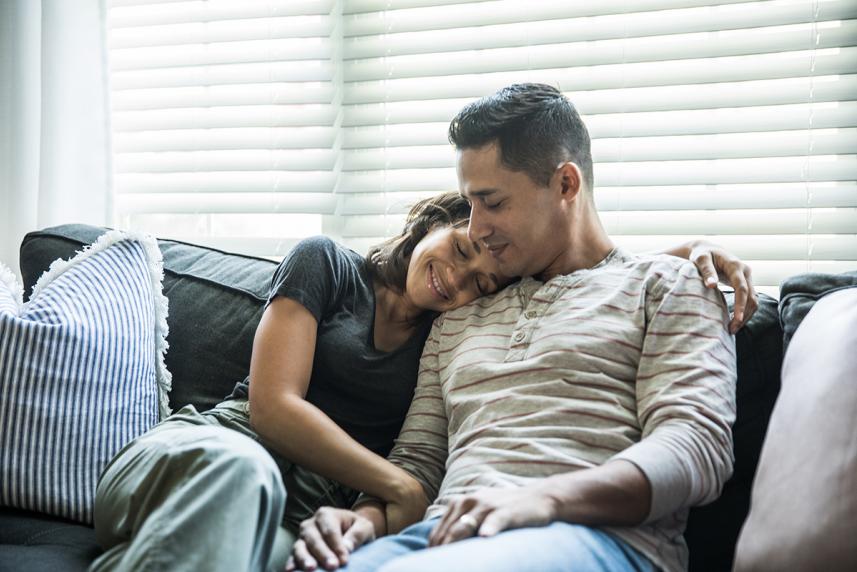
Could you be suffering from relationship anxiety?

It’s normal to feel nervous or excited with a new partner. But if intense feelings of worry are affecting your time together or harming your mental health, you may need to address it. Here, the signs of relationship anxiety and how to cope.
Jitters and stress are normal in any relationship. But relationship anxiety — when you feel overwhelmed by concerns and fears about a relationship — is next level. You may question whether your partner cares for you, worry they’ll leave you or overthink their every word and action.
With relationship anxiety, you experience these intense concerns without reasons for that worry, says Wyatt Fisher, Psy.D. Fisher is a licensed psychologist specializing in couples counseling in Boulder, Colorado. When something truly threatens the relationship (cheating or substance use disorder, for example), it’s normal to be stressed out. But with relationship anxiety, your fears are usually unfounded and exaggerated.
Relationship anxiety also differs from the romantic butterflies you feel in your stomach. “Butterflies usually occur in the early phase of a relationship, when a couple is first falling in love,” says Fisher. It’s natural to be excited or nervous or even hesitant as you get to know someone new. “Relationship anxiety occurs after the newness has faded away and the person develops doubt about the relationship, even when things are going well.”
When left unchecked, these fears can harm the relationship. It’s essential to address your anxiety so that you and your partner can fix any underlying issues before a breakup becomes the only solution.
Relationship anxiety isn’t a specific diagnosis in the same way that anxiety disorder or depression is, says Fisher. But it is an aspect of anxiety that mental health professionals can identify and help with.
Here, we talk to experts about how to get to the bottom of your relationship anxiety.

What causes relationship anxiety?
Relationship anxiety is often caused by negative experiences in past relationships, such as infidelity or abuse. It might also be linked to something that’s happened in your current relationship that hasn’t been addressed, says Kendall Phillips, LPC. Phillips is a licensed professional counselor with CRM Counseling Life Coaching and Wellness in Deer Park, Texas.
Your anxiety may also come from childhood trauma, such as being abandoned or feeling unloved or unwanted.
“The innate desire to be liked and accepted by the other person causes anxiety, which is actually common,” says Debanjan Banerjee, MD. Dr. Banerjee is a consultant geriatric psychiatrist at the National Institute of Mental Health and Neurosciences in Bangalore, India. But because relationship anxiety is so constant, it can get in the way of your day-to-day life.
What are the signs that you have relationship anxiety?
Those previous negative experiences may lead you to:
- Feel insecure or jealous. You may feel threatened by relationships your partner has with friends and family members. Or you may worry when your partner spends any time away from you.
- Avoid opening up or dealing with your emotions. You may fear being vulnerable or simply being yourself. You also might shut down and stay quiet about things that bother you.
- Overanalyze your partner’s behaviors. You may worry about why your partner hasn’t called you back right away or responded to a text, believing it’s a sign that they’re no longer interested.
- Doubt your partner’s commitment to your relationship. You may look for proof that your partner has 1 foot out the door, even when they’re showing you affection and care.
Relationship anxiety can also cause you to cope in unhealthy ways. “A person with relationship anxiety normally deals with the problem either by clinging to the other person or by pushing them away,” Dr. Banerjee says. Either response can confuse or upset your partner.
How to handle relationship anxiety
Follow these steps to get to the root of your anxiety so that you can curb it for good.
- Do some self-reflection. Think through your past relationships and any experiences that may affect how you feel today. Write down your thoughts if that helps. “Maybe you’ll discover that the negative experiences from your past relationships are the culprit behind your anxiety,” Dr. Banerjee says.
- Be present. “A lot of us are guilty of always thinking too far ahead, and as a result, we focus on the what-ifs instead of what’s right before us,” Dr. Banerjee says. Try to focus on the good things that are happening in the here and now.
- Talk to someone you trust. Sit down with a friend or family member and fill them in on how you feel. “Getting feedback from an objective person can help you sift through which parts of your anxiety are valid and which parts are not,” Fisher says.
- Seek counseling. Consider talking to a therapist if you’re struggling to work through the feelings on your own. Therapists are trained to help you unpack the roots of your anxiety. They can also teach you healthy tools for dealing with complex emotions and situations, Phillips says. It’s a good idea to seek professional help sooner rather than later so that it doesn’t consume or sabotage your relationship, says Fisher.
- Share your feelings with your partner. When you’re ready, tell your partner how you feel, Fisher says. Talk about your feelings calmly and clearly and be open to answering questions. Be ready to listen to any criticism and feedback your partner may have after talking through your feelings.
If a conversation doesn’t improve things, or you need more help working through your issues together, connect with a couples counselor. The therapist can help you hone ways to communicate, listen and empathize. And you needn’t wait for things to get tough before trying couples therapy. The sooner you and your partner learn how to work through struggles together, the stronger and deeper your relationship will become.
The Optum Store makes affording mental health care easier. You can choose from 3 subscription plans that are designed to meet your needs. Learn more.
Additional sources
Signs of relationship anxiety: Family Process (2015). “Worried About Us: Evaluating an Intervention for Relationship-Based Anxiety.”
